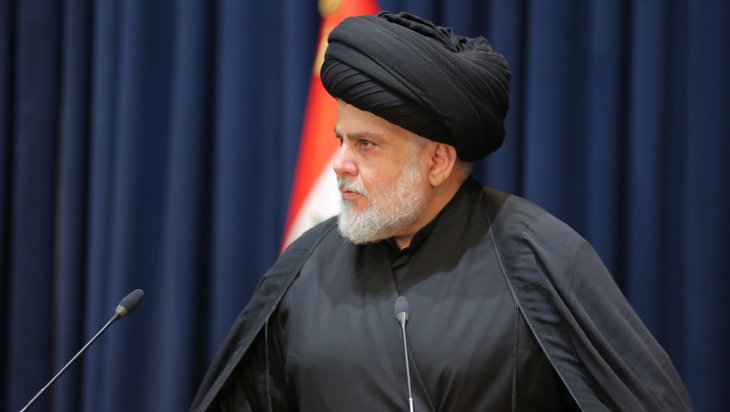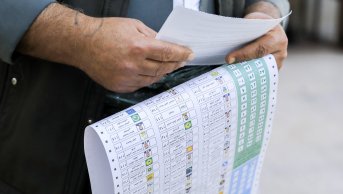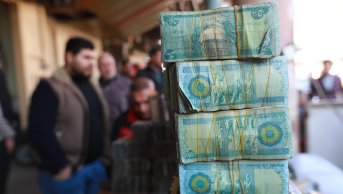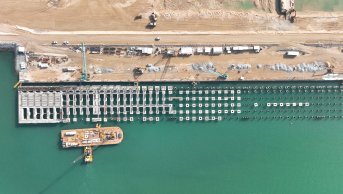What Are Sadr’s Plans for the Elections in Iraq?

The upcoming provincial council elections in Iraq, scheduled by parliament for November 6, are seen as a critical moment in the country's political future. The government will hold the official elections no later than December 20, after the adoption of the 2023 federal budget law. With a newly amended electoral law and the reintroduction of the Sainte-Laguë method, the elections will have a significant impact on Iraq’s political landscape, especially if key political players such as the Sadrist Movement decide to participate. Although leader Muqtada al-Sadr announced in April that his movement would be withdrawing from politics indefinitely, Sadr has made similar announcements in the past and has returned. The opportunities inherent in the upcoming elections may outweigh the risks for Sadrists, and their absence from the political scene is far from guaranteed.
The Sainte-Laguë method was one of the original grievances of the October 2019 protestors, known as the Tishreen Movement, because it largely favored the more established, better-funded party blocs over independent candidates. When Mustafa al-Kadhimi became prime minister in 2020 in the aftermath of the protests and former Prime Minister Adel Abdul Mahdi’s resignation, the Iraqi Parliament amended the electoral law and removed the Sainte-Laguë method. This divided Iraq into more constituencies, re-established the women's quota to a minimum of 83 seats, and reduced the sway of electoral lists, instead granting the individual candidate with the most votes in each constituency a seat in the parliament.
Following a year of political deadlock and the return of the Iran-aligned Shia Coordination Framework to power, however, the Iraqi Parliament has now re-adopted the Sainte-Laguë method for both the provincial council and parliamentary elections. And assuming the Iraqi Independent High Electoral Commission does not request additional time to prepare for provincial council elections, the electoral law changes will require participating political groups to quickly shift their strategies for the first provincial elections since April 2013.
It is expected that political parties will form blocs and run jointly to increase their representation in the parliament with the Sainte-Laguë method in place. However, the opposite may be true for the Sadrist Movement, which enjoyed significant popular support in the 2018 and 2021 elections. If the Sadrist Movement forms an electoral coalition, similar to the 2018 Alliance Towards Reforms (Saairun/Forward), the main objective will be to create a specific bloc profile rather than simply increasing the number of votes. It would not be surprising, for example, if the Sadrist Movement cooperated with groups such as the Tishreen Movement.
Of course, this all depends on whether Sadrists intend to follow through on Sadr’s recent decision to withdraw from politics. Particularly in the southern provinces, the Sadrist Movement stands to lose significant clout should they not participate in the provincial elections, making space for the Coordination Framework to gain the majority in many provinces. Considering the bitter rivalry between the Sadrist Movement and the Coordination Framework that was amplified during the deadlocked government formation process, it is not likely that the Sadrist Movement will be willing to concede this victory to its political rivals.
Instead, as the elections approach, the Sadrist Movement will likely consolidate its base by organizing protests. In turn, the mobilized social base will put pressure on the Sadrist Movement to participate in the elections. Given that the Sadrist Movement either received the highest votes or had the most seats in the Baghdad, Basra, Dhi Qar, Karbala, Maysan, Najaf, and Qadisiyyah provinces in the 2021 elections, it is expected that the party can likewise secure a majority in these provincial councils. Any expectations that the Sadrist Movement will purposefully miss out on this opportunity do not reflect reality.
Looking ahead, parliamentary elections are expected to take place roughly 12-18 months after the provincial council elections, so the provincial election results can be seen as a warm-up for the parliamentary elections. If the Sadrist Movement aims to form a majority government in the parliamentary elections, it is crucial for them to participate in this provincial council round. Even in provinces where they cannot gain a majority, Sadrists will still benefit from running in opposition to the Coordination Framework and expanding their supporter base. In fact, this strategy works well with the Sadrist Movement's pledge to "prevent corruption."
The Sadrist Movement will likely participate in the upcoming elections, as the potential losses of not participating outweigh the risks of low votes. The movement has the opportunity to reassure its traditional bases of support in the usual provinces while also expanding its base by portraying itself as the main opposition party. However, a political agreement must be established regarding the post-election principles to ensure stability amongst the political rivals and avoid risks to Iraq’s political structure. The success of the provincial council elections and the peaceful transfer of administrative power in the governorates will set the tone for parliamentary elections in the near future.
This article was published on Fıkra Forum on May 24, 2023, with the title " What Are Sadr’s Plans for the Elections in Iraq?”








